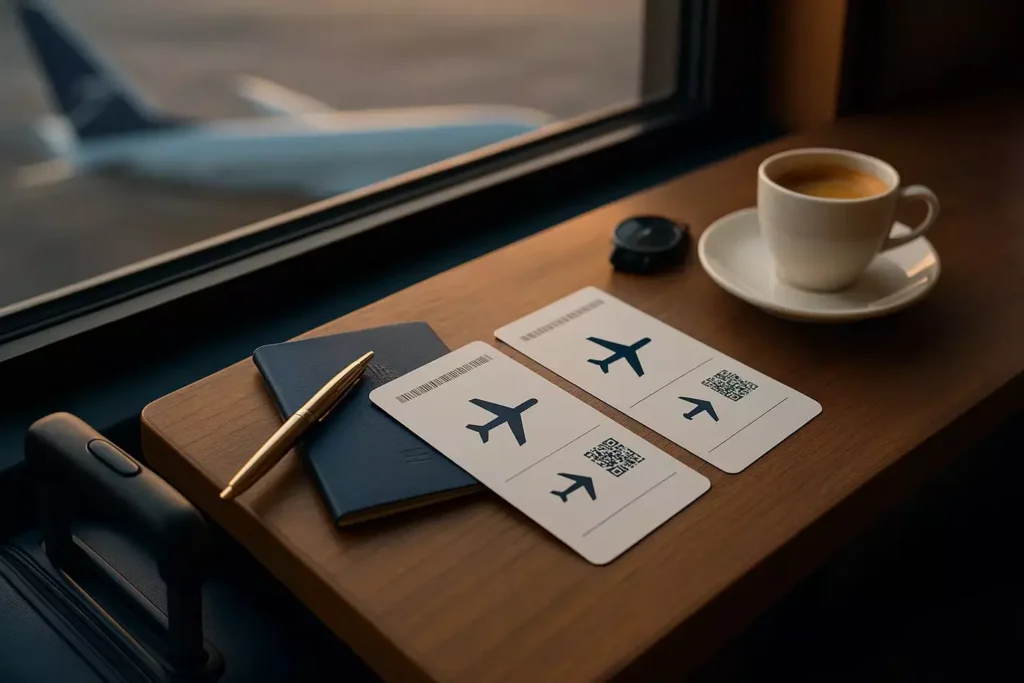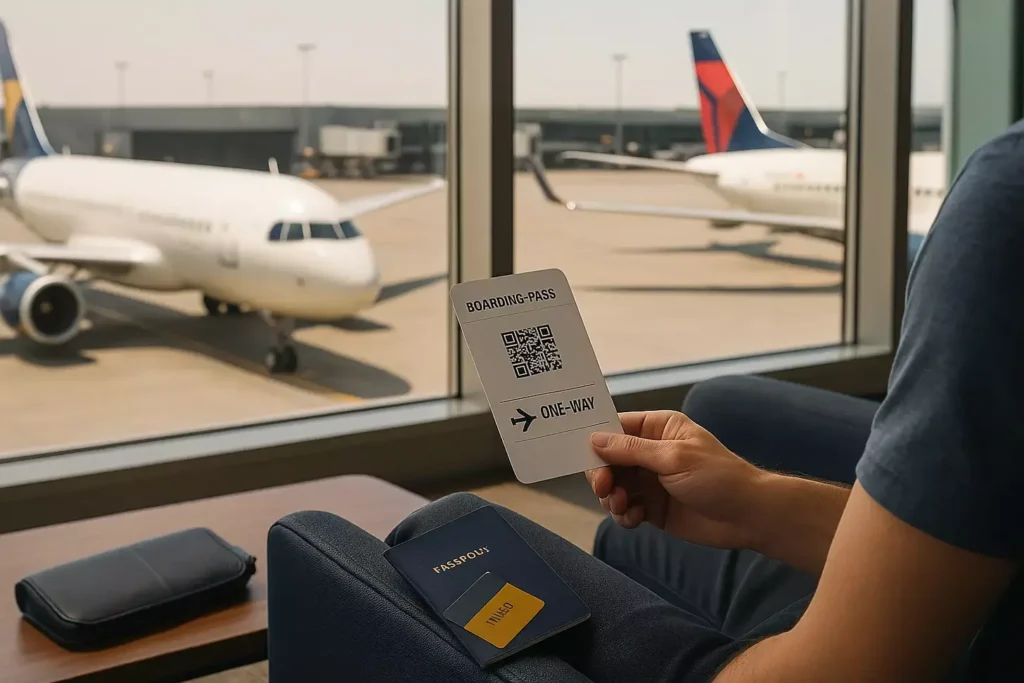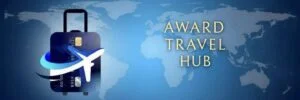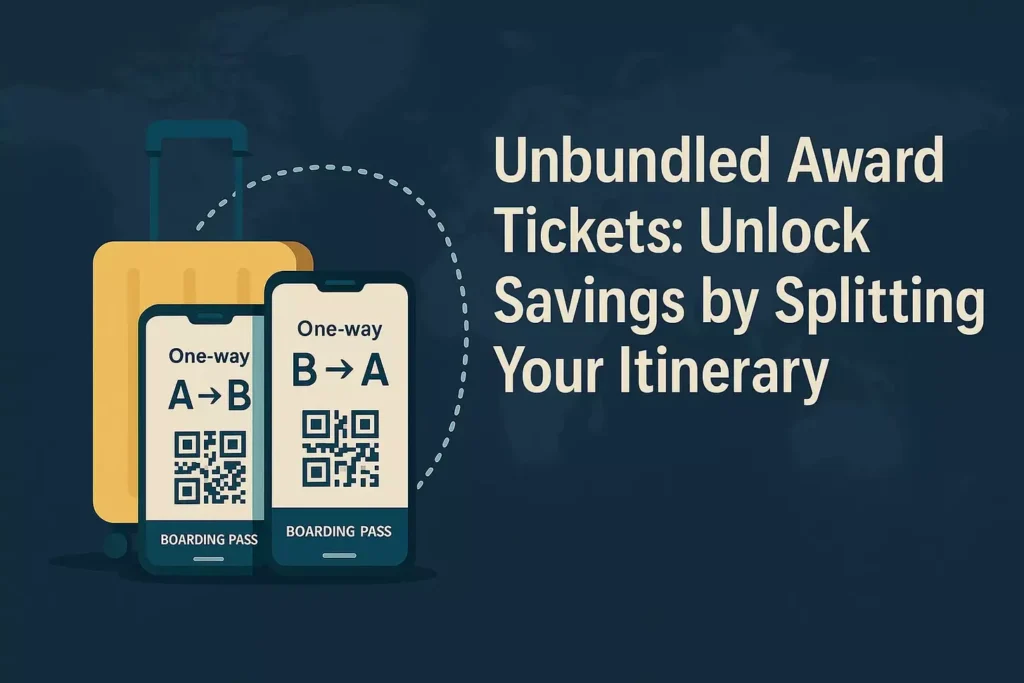What if the way you’ve always booked flights with your hard-earned rewards is leaving miles on the table? Most travelers instinctively search for a single round-trip reservation when planning their journeys. But this common habit might be costing you flexibility and value without you even realizing it.
We’re introducing a powerful strategy that changes the game. Booking your travel as separate one-way reservations often costs exactly the same number of miles as a traditional round-trip. This approach provides significantly more control over your plans. Airlines like JetBlue are now actively encouraging this method, highlighting its growing importance for savvy travelers.
This guide will walk you through the fundamental principles. We’ll show you how to leverage this across multiple loyalty programs. You’ll learn why flexibility matters more than ever and how positioning yourself to adapt can unlock better availability and deals.
Key Takeaways
- Splitting a round-trip into two one-way bookings typically costs the exact total miles.
- This strategy offers greater flexibility to independently change parts of your trip.
- Airlines are beginning to recognize and promote this consumer-friendly booking method.
- The approach works across major programs like Flying Blue, United MileagePlus, and American AAdvantage.
- Separate bookings help you adapt quickly when better flight options or award space open up.
- Mastering this technique is a hallmark of experienced Points and Miles enthusiasts.
Understanding Unbundled Award Tickets: Why Splitting an Itinerary Could Save You Miles
The secret to maximizing your travel rewards lies in understanding a key difference between cash fares and award pricing. This approach involves reserving your departure and return journeys separately.

The concept behind unbundled awards
We book these segments independently. This method provides incredible control over each leg of your trip. You are no longer locked into a single, rigid round-trip reservation.
The pricing structure for these redemptions is what makes this strategy so powerful. Unlike cash tickets, the cost of a one-way award flight is typically half the price of a round-trip ticket. There is usually no penalty for booking separately.
| Booking Type | Miles Cost | Fees & Taxes | Total Cost |
|---|---|---|---|
| Roundtrip Award | 40,000 | $296 | 40,000 miles + $296 |
| Outbound One-Way Award | 20,000 | $115 | 20,000 miles + $115 |
| Return One-Way Award | 20,000 | $183 | 20,000 miles + $183 |
| Combined One-Way Awards | 40,000 | $298 | 40,000 miles + $298 |
Key benefits for points and miles travelers
This pricing parity is a game-changer. It removes the financial barrier to booking flexible itineraries. You gain all the advantages without spending extra miles.
This principle applies across major programs such as Flying Blue, United MileagePlus, and American AAdvantage. Understanding it unlocks strategic opportunities that are not available with a traditional booking.
Benefits of Booking One-Way Award Tickets
Separating your itinerary into distinct one-way bookings unlocks a level of control that traditional round-trip reservations can’t match. This approach transforms how you manage your travel plans.

Cost savings compared to round-trip bookings
The financial advantages extend beyond initial pricing. When plans change, separate bookings prevent costly penalties.
Imagine booking flights to Milan but deciding to return from Rome instead. With individual reservations, you cancel just the return segment. You rebook it for the same mileage cost without affecting your outbound flight.
This strategy avoids change fees that accumulate with traditional bookings. Better award availability often appears after initial reservations.
Flexibility to adjust individual legs
Maintaining independence between flight segments offers tremendous value. Each part of your journey operates separately.
We’ve helped travelers upgrade economy seats to premium cabins days before departure. With locked round-trip reservations, this would be nearly impossible.
You can cancel one leg due to unexpected circumstances while keeping the other intact. Different loyalty programs can be used for each segment when better opportunities arise.
Strategies for Maximizing Points, Miles, and Rewards
Advanced travel rewards strategies go beyond simple booking to unlock hidden value in your loyalty programs. We help travelers transform their approach by combining different redemption methods.
Mixing business and economy classes
One powerful technique involves blending cabin classes on the same journey. This approach lets you experience premium comfort where it matters most while conserving points.
Consider a trip to Portugal using Air Canada Aeroplan points. Instead of spending 120,000 points for a round-trip business class, book TAP business class outbound for 60,000 points. Fly economy home for 35,000 points. You save 25,000 points while enjoying lie-flat seats on your overnight flight.
This strategy works perfectly with separate bookings. You allocate premium seating to long overnight flights and economy to shorter daytime journeys.
Combining credit card rewards for optimal redemptions
Your credit card rewards become more powerful when you strategically combine programs. Separate bookings let you use different loyalty programs for each leg.
We recently helped book Alaska travel using 22,000 Virgin Atlantic points for the outbound Delta flight. The return used 20,000 Alaska Airlines miles. This split across two programs made the trip possible with 42,000 total points.
This mix-and-match approach transforms how you manage your credit card portfolio. Instead of consolidating everything into one program, maintain balances across multiple programs. Deploy them where they provide the best value for each specific flight segment.
Step-by-Step Guide to Booking Unbundled Award Tickets
Executing this strategy is simpler than you might think, and we’ll guide you through each critical step. The key is a methodical approach that ensures you capture the best options for each leg of your journey.
Preparing your itinerary and checking award availability
Start by defining your travel details. Identify your departure and arrival airports, along with flexible date ranges. This flexibility is crucial for finding good availability.
Next, search for each flight segment independently. Use the one-way search function on airline websites. Look for your outbound journey first, then search separately for your return.
Note the mileage cost and taxes for each potential flight. This separate search reveals options that a combined search might miss.
Booking one-way tickets and managing fees
When you find suitable flights, book them as two separate transactions. You will receive two distinct confirmation numbers. Keep detailed records for each reservation.
Understanding fee policies is essential. For example, United Airlines eliminated close-in booking fees but may require more miles for reservations made within 30 days of travel.
Change and cancellation costs can vary. Fees often depend on how far in advance you make changes and your flight’s origin.
If you need a positioning flight to reach a central hub, plan your connection time carefully. We recommend these minimum layovers:
- Domestic connections: At least three to four hours
- International arrivals: Four to six hours
This extra time accounts for claiming luggage, changing terminals, and clearing security again between your separate bookings.
Navigating Airline-Specific Rules and Exceptions
Before committing to separate bookings, travelers should be aware of significant exceptions in how certain airlines structure their award pricing. Not all programs follow the same flexible approach we’ve discussed.
Delta, Emirates, and ANA exceptions in award bookings
Delta SkyMiles frequently requires round-trip reservations for the best international redemption rates. A Detroit to Milan journey illustrates this pricing difference clearly.
The round-trip costs 52,600 miles with cardholder discounts. However, each one-way segment costs 44,200 miles. This yields a total of 88,400 miles for separate bookings.
Emirates presents another important exception. Their “Saver” business class rates only appear during round-trip searches. These discounted options vanish when booking individual segments.
ANA Mileage Club takes the most restrictive approach. The program completely prohibits one-way redemptions on both their flights and partner carriers.
| Airline Program | One-Way Policy | Best Value Approach |
|---|---|---|
| Delta SkyMiles | Available but often priced higher | Round-trip for international flights |
| Emirates Skywards | Saver rates not available one-way | Round-trip search required for deals |
| ANA Mileage Club | Not permitted on any flights | Round-trip booking mandatory |
Understanding dynamic pricing and tax surcharges
Dynamic pricing adds another layer of complexity to redemption strategies. Programs like United MileagePlus adjust costs based on demand patterns.
The same route can vary dramatically depending on travel dates. Seasonal fluctuations and booking timing significantly impact final prices.
We always recommend comparing both booking approaches before finalizing travel plans. Check one-way and round-trip options to identify the optimal deal for your specific situation.
Mixing and Matching Airlines for an Optimized Itinerary
When you strategically mix carriers, you gain access to routes and schedules that no single airline can offer on its own. This approach transforms how you build your travel plans.
United MileagePlus demonstrates this flexibility perfectly. As a Star Alliance member, you connect with 26 partner carriers worldwide. You can fly from the U.S. to Asia via multiple routes.
Choose between the Pacific and Atlantic paths. Options include Frankfurt on Lufthansa, Zurich on SWISS, or Tokyo on ANA. Each segment can use different alliance partners.
The real advantage comes with separate bookings. You book your outbound flight using the most convenient Star Alliance partner. Then independently select your return carrier based on availability and cost.
This strategy works exceptionally well for multi-destination trips. Fly to Germany on United, then position to Austria on another carrier. Return home on a different airline.
Understanding routing rules is crucial. United doesn’t restrict maximum permitted mileage. However, certain routings, such as North America to Oceania via Europe, are prohibited.
By mixing airlines across alliances, you optimize each flight segment independently. This creates itineraries that maximize both experience and value.
Tips for Overcoming Common Booking Challenges
Navigating separate flight reservations requires careful planning to avoid common pitfalls that can disrupt your travel experience. We help travelers anticipate these situations with practical strategies.
Managing connection times and luggage issues
Separate bookings mean airlines have no obligation if you miss a connecting flight. This demands generous buffer time between segments.
When checking bags, you typically need to claim and recheck luggage between flights—factor in terminal changes and security screening.
| Connection Type | Minimum Time | Recommended Buffer |
|---|---|---|
| Domestic Flights | 3-4 hours | +1 hour for large airports |
| International Arrivals | 4-6 hours | +2 hours during peak times |
| With Checked Bags | Add 45 minutes | Terminal change adds 30 minutes |
Using trusted traveler programs to ease transitions
Programs like TSA Precheck and Global Entry dramatically reduce security and customs processing times. This flexibility is invaluable when managing tight connections.
Many credit cards offer application fee credits, making these programs essentially free for families. The time savings prove crucial during complex travel scenarios.
When returning internationally, these programs streamline passport control. This helps ensure you reach domestic connecting flights comfortably.
Real-World Examples and Case Studies
Let’s examine how travelers have successfully implemented this strategy in real situations. These concrete examples demonstrate the flexibility and savings possible with separate bookings.
Case study: Trip planning from Washington, D.C. to Milan
A traveler planned a trip using Flying Blue miles. The round-trip costs 40,000 miles total. Booking as two separate segments provided incredible flexibility.
When plans changed, they could modify the return city to Rome without affecting the outbound flight. This saved significant rebooking fees and preserved the original itinerary.
Insights from successful mix-and-match bookings
Another traveler combined an Air France business class flight from Paris to Chicago with a cheap United flight home. This mix of premium and economy options optimized both comfort and cost.
For Alaska travel, using Virgin Atlantic points for the outbound segment and Alaska Airlines miles for the return made the trip possible. Neither program alone had sufficient balance.
| Booking Scenario | Outbound Cost | Return Cost | Total Savings |
|---|---|---|---|
| Washington to Milan | 20,000 miles + $115 | 20,000 miles + $183 | Flexibility to change the return city |
| Paris to Cleveland | 43,500 miles (business) | $89 (cash economy) | Mixed premium and budget options |
| Alaska trip | 22,000 Virgin points | 20,000 Alaska miles | Used split program balances |
These examples show how creative thinking unlocks better travel opportunities. The key is flexibility in approach and willingness to mix different booking methods.
Conclusion
Your path to maximizing every point and mile begins with embracing the flexibility of segmented reservations. When planning journeys with loyalty rewards, there’s rarely a need for traditional round-trip bookings. Separate one-way reservations typically cost the same total points while offering superior control.
The core advantage lies in complete independence for each flight segment. You can modify, cancel, or upgrade individual legs without affecting your entire trip. This approach works across most major programs, with only a few exceptions for specific airlines.
We encourage you to apply these strategies to your next redemption. Search for one-way options first. Compare pricing and consider mixing carriers or cabin classes. This creative thinking unlocks better deals and transforms how you experience travel rewards.
FAQ
Q: What exactly are unbundled award tickets?
A: Unbundled award tickets mean booking your trip as separate one-way flights instead of a single round-trip reservation. We do this to find better availability and pricing for each segment, often saving a significant number of miles or points.
Q: How can splitting my itinerary save me miles on business class or economy flights?
A: Airlines frequently price award tickets per segment. By searching for one-way award availability, we can mix airlines or booking classes. For example, you might find a cheap Business Class seat on one leg and a low-mileage economy ticket on the return, resulting in a lower total cost than a bundled round-trip award.
Q: What is the main benefit of booking one-way flights with points?
A: The most significant advantage is flexibility. It allows us to adjust individual legs without impacting the entire trip. If your plans change, you can rebook or cancel one segment more easily. It also opens up opportunities to use different airline partners or credit card travel portals for the best deal.
Q: Are there any downsides or fees to booking two one-way tickets?
A: The primary challenge can be managing connection times if you’re mixing airlines, as you may need to collect and re-check luggage. Some airlines also have higher fees for one-way awards. We always recommend checking the cash price and taxes for each segment before booking to ensure the redemption offers good value.
Q: Can I mix airlines from different alliances, like Star Alliance, on a single trip?
A: Absolutely. This is a powerful strategy. Since you’re booking separate tickets, you can combine flights from various airlines and alliances. This is ideal for maximizing rewards from different loyalty programs. Just be sure to leave ample time between flights at the airport for connections.
Q: How do airline-specific rules, like Delta’s or Emirates’ dynamic pricing, affect this strategy?
A: Dynamic pricing means award costs fluctuate. For carriers like Delta, searching for one-way availability can sometimes reveal lower prices than a round-trip search. However, airlines like Emirates often have high surcharges on award tickets, so we always calculate the total cost, including taxes and fees, before committing.



